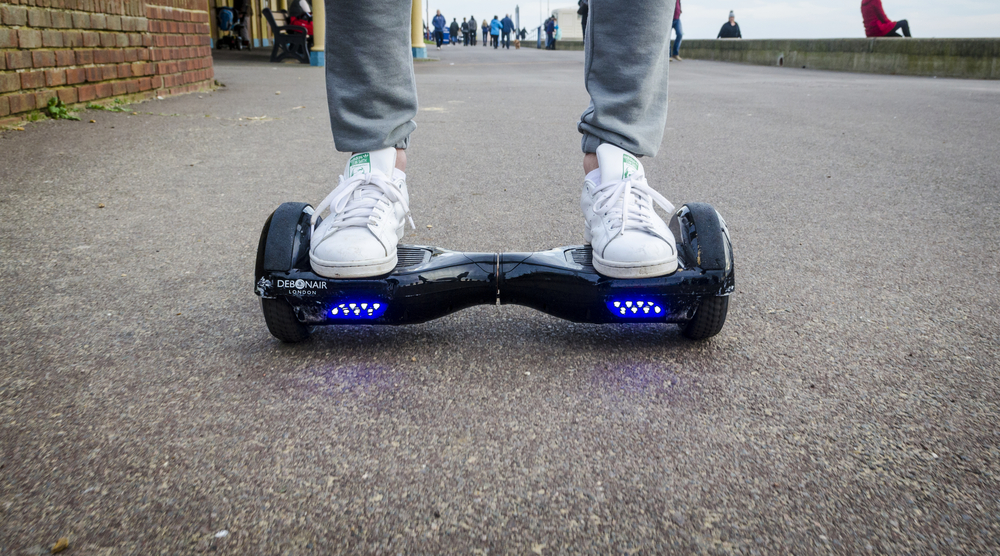Headline
Watchdog pushes precautionary ban until hoverboards proven safe
MANILA, Jan. 3 (PNA)—The EcoWaste Coalition, a non-profit health and environmental watchdog group that is also looking at toy safety, urged the government to impose a precautionary ban on the importation, sale and use of self-balancing, two-wheel scooters known as hoverboards until all the product safety issues have been fully resolved.
Last Dec. 29, Trade and Industry Undersecretary Victorio Dimagiba announced that the Department of Health (DOH) and the Department of Trade and Industry (DTI) have formed a panel to investigate the safety issues hounding hoverboards. The panel is expected to meet this January.
In a joint advisory, DTI and DOH also advised the public against purchasing hoverboards for kids below 14 years old “in the light of reported health and safety issues/concerns (including fires and explosion) and as a precautionary measure.
”
“We welcome the formation of the panel and urge its members to get to the bottom of the hoverboard safety controversy as soon as possible,” said Thony Dizon, Coordinator of the EcoWaste Coalition’s Project Protect.
“Pending the initiation and completion of the probe and the adoption of strong safety standards, we find it logical for the government to enforce a precautionary ban on hoverboards that are being sold in formal and informal retail outlets, as well as in online shopping sites,” he said.
Retailers who cannot provide verifiable assurance of safety of the hoverboards they are selling should voluntarily return these products to their source, the EcoWaste Coalition further suggested.
Divisoria toy vendors sell hoverboards from P7,500 to P14,500.
Online retailer Lazada offers Hoverboards from P7,315 to P17,999, while OLX sells them for P5,500 to P75,000.
“The reported fire and fall incidents in Europe and US involving substandard hoverboards should spur strong product safety, labeling and warning requirements,” Dizon said.
In the United States, the Consumer Product Safety Commission (CPSC) has admitted “there is no safety standard in place for hoverboards.” The CPSC is currently investigating cases of hoverboards that have caught fire, as well cases of serious fall injuries resulting to “concussions, fractures, contusions/abrasions, and internal organ injuries.”
According to the CPSC, “retailers should always be asking their suppliers if there is an applicable safety standard in place before agreeing to sell those products,” stressing that “the absence of any standard should cause retailers to require extra proof of sound design, manufacturing and quality control processes.”
In the United Kingdom, the National Trading Standards (NTS) have examined over 17,000 hoverboards from October to December 2015 and detained more than 15,000 (88%) of them for being unsafe.
According to NTS, “many of the items detained and sent for testing have been found to have non-compliant plugs without fuses, which increases the risk of the device overheating, exploding or catching fire.”
Major UK retailers have removed hoverboards from store shelves.
Citing information from the European Union’s Rapid Alert System for Non-Food Products (RAPEX), the EcoWaste Coalition said that UK has ordered the “destruction” of China-made Misuta Sport hoverboard because “the battery charger has no cut-off switch on the charging circuit which means that the battery could overheat when it is fully charged and potentially cause a fire.”
For those who have already bought their hoverboards, the EcoWaste Coalition reiterated the following safety tips from CPSC:
- Do not charge a hoverboard overnight or when you are not able to observe the board.
- Charge and store in an open dry area away from combustibles (meaning items that can catch fire).
- Do not charge directly after riding. Let the device cool for an hour before charging.
- Do not ride near vehicular traffic.
- Wear safety gear when using a hoverboard such as a helmet, and knee and elbow pads and wrist guards for protection from falls.
The EcoWaste Coalition further asked the DTI and DOH to implement necessary regulatory measures to rid the market of toys laden with hazardous chemicals such as lead and other toxic metals, phthalates and persistent organic pollutants. (PNA)






















